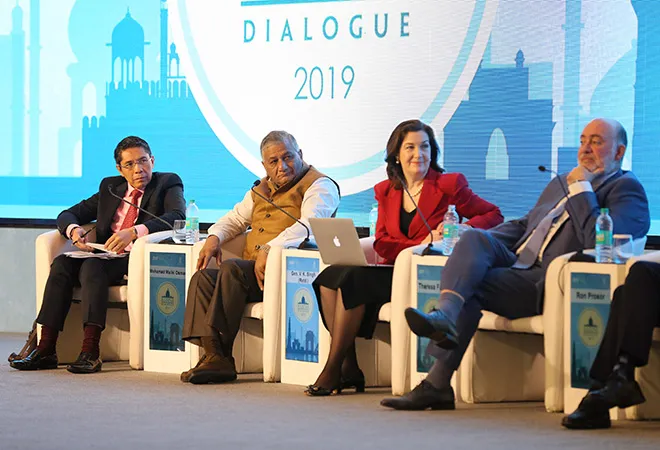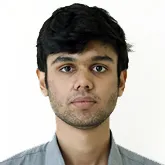
In 2014, India declared its intention to position itself as a “leading power” in the international order. From a structural perspective, it was easy to see why. Wealth and power have long been defusing eastwards—with China and India being the primary points of focus of such a shift. Both nations boast long civilisational histories, unique political and economic norms, and large populations and territories.
Both countries now sense that they are in a position to influence global affairs in a manner that can suit their national interests. This implies that both are also attempting to “globalise” their own ideas for how societies and states must be organised. In fact, China already possesses its own consensus under Chairman Xi Jinping: “Socialism with Chinese Characteristics for a New Era.” It consists of a blend of techno-political authoritarianism and mercantilist state capitalism.
Does India have its own “consensus”? Five years after declaring its ambition, what are the policy implications for India—both domestically and in international affairs? And how would these policy choices implicate the future of the international order? The Raisina Dialogue panel, “New Delhi Consensus”, attempted to interrogate how India was evolving, and how other actors were responding to these changes.
At home, it was clear that the consensus is that India must aggressively grow its industrial and technological capabilities. These capabilities have formed a part of the core strength of all consequential nations in international affairs. For India, this requires systemic reforms in its political and economic institutions. Gen. (Retd.) Dr V. K. Singh, Indian Minister of State for External Affairs stated that only when India’s young were connected to and driving global opportunity through industry, business and technology would an Indian proposition on economic growth emerge.
India will also have meet the expectations of its citizens as a democratic society. Arguably, it will be one of the largest societies to have achieved high rates of economic growth while guaranteeing political freedoms. Ron Prosor, Former Israeli Ambassador to the UN and the UK, argued that this was one of India’s key strengths. He believed that only free societies could create the optimal conditions for talent, innovation and entrepreneurship to flourish.
The panel also agreed that India’s domestic transformations would translate into greater international agency. Mohamad Maliki Osman, Senior Minister of State of Singapore, said as much when he stated that Southeast Asian states expected India to play a greater economic role in the region and the world. He mentioned RCEP—which has been a sour point between India and other South East Asian economies—calling for India’s continued engagement with the negotiation process. India is yet to emerge as an “engine” for globalisation in the same way that China, or the US before that, has achieved.
On the strategic front, India was discovering and shaping new geographies, Eurasia and the Indo-Pacific key amongst them. In many ways India is an emerging lynchpin between these two geographies. “The current uncertainty in the international order is driving this urgency to find new partners,” said Theresa Fallon, Founder of Centre for Russia Europe Asia Studies in Belgium. With the US and China both adopting increasingly competitive international postures—often at the cost of the structural integrity of the international system—it is clear that other powers will have to preserve a rule-based institutional order.
Indeed, India has also gradually expanded its role and interest in international institutions. On some of the key multilateral processes underway, whether in negotiations about cyberspace or multilateral trade, India is actively attempting to set the rules of the road. David Malone, Rector of the United Nations University, observed that this has been the case since the end of the Cold War. As India rises, he said, it was only natural that international institutions would accommodate its interests and preferences.
Undercutting the conversations in this panel were two themes. First, that the international order needed new ideas and guarantors. The “international liberal order” was straining under the weight of global powershifts. Second, that India’s choices would play a key role in shaping its future. With time, this will require India to put forward a clear proposition on the norms and institutions that govern international affairs.
It is clear that this consensus on this proposition is still evolving. Nevertheless, a few elements appear central to it. India will be a democratic and plural society capable of delivering economic opportunity and social mobility to its citizens. And as an international power, it will advocate multilateral and rules base solutions. Perhaps a well-articulated “New Delhi consensus” will eventually allow India to claim its position as the as the natural heir to the liberal international order.
This essay originally appeared in The Raisina Conference Report 2019
The views expressed above belong to the author(s). ORF research and analyses now available on Telegram! Click here to access our curated content — blogs, longforms and interviews.




 PREV
PREV


